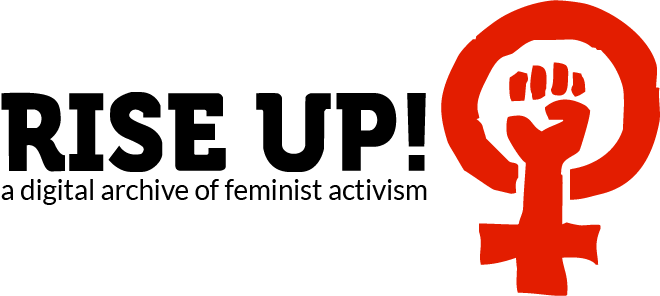In Canada, we celebrate Black History Month each February because Jean Augustine, the first African Canadian woman elected to Parliament, made a motion in 1995 that passed unanimously.
At the Women’s Centre, we are committed to accountable anti-racism, to listening and learning from people who are the experts of their own experiences, and to directing our privilege and power toward an equitable future.
In keeping with the theme for Black History Month 2023, “Ours to Tell,” we will highlight stories, podcasts, and articles by Black feminists, activists, journalists and artists. Join us in celebrating the invaluable critical perspectives and creative contributions of Black women and gender-diverse people this month and every month.
Below, we’re sharing excerpts directly from this month’s newsletter by Rise Up! A Digital Archive of Feminist Activism about Black women’s activism in Canada from the 1970s to the 1990s:
The Congress of Black Women of Canada (CBWC) / Congrès des femmes noires du Canada was formed in 1973. It is dedicated to improving the lives of Black women and their families in Canada. Kay Livingstone was the organization’s first chair. It developed out of the Canadian Negro Women’s Association, which had been organizing since 1951. You can learn more about CBWC and explore their organizational material here.
The Rise Up collection features several films by and about Black women in Canada, [including] Black Mother Black Daughter (1989) by Sylvia Hamilton and Claire Prieto, and produced by the National Film Board of Canada. Sylvia Hamilton narrates the film, introducing the audience to the Black women who had a significant impact on her life as well as the Black community in Nova Scotia.
This is a poster advertising a Black History Month event organized by the Black Women’s Collective in 1988 featuring Angela Y. Davis as the keynote speaker. The event was co-sponsored by many groups active on women of colour and immigrant women’s issues, as well as other feminist, anti-racist, and progressive organizations. You can read Davis’s speech “Sisters in Struggle – Building A Global Movement” in this issue of Our Lives: Canada’s First Black Women’s Newspaper. An interview Davis gave at a small press conference while in Toronto for this event is featured in Vol. 1, No. 3 of Cayenne.
The Black Women’s Collective (BWC) was active in Toronto from 1986 to 1989 and had a radical, intersectional analysis of racism, sexism, homophobia, class, and imperialism. The group published Our Lives: Canada’s First Black Women’s Newspaper. The documentary Sisters in the Struggle by Dionne Brand and Ginny Stikeman features several Black Women’s Collective organizers. To learn more about the Black Women’s Collective, you can check out this booklet produced by the Canadian Centre for Gender and Sexual Diversity.
This special Women of Colour issue of Fireweed: A Feminist Quarterly from Spring 1983 features work from several notable Black feminists. There is poetry by Dr. Afua Cooper and Sylvia Hamilton; an article on Black Women’s Studies; a photo series of Black women in Toronto by Claire Prieto and Roger McTair; several articles by Makeda Silvera; and a conversation between members of the Editorial Collective of this issue about what it means to live in a racist, classist society, and the limits of sisterhood. This is a rich resource to delve into the history of Black feminism in Canada. If you have Issue 17 of Fireweed, which is the second part to this series, please get in touch! [[email protected]]
Finally, we’d like to share this lesson plan developed in collaboration between the Rise Up Educational Resources Committee and Emily Dychtenberg, MT. The lesson plan focuses on Black women’s activism and its rise in the 1970s and 1980s. This is a great resource for those looking to bring the history of Black women’s activism in Canada into the classroom.
Explore these resources (and so much more!) by visiting the Rise Up website: http://riseupfeministarchive.ca

Comments are closed